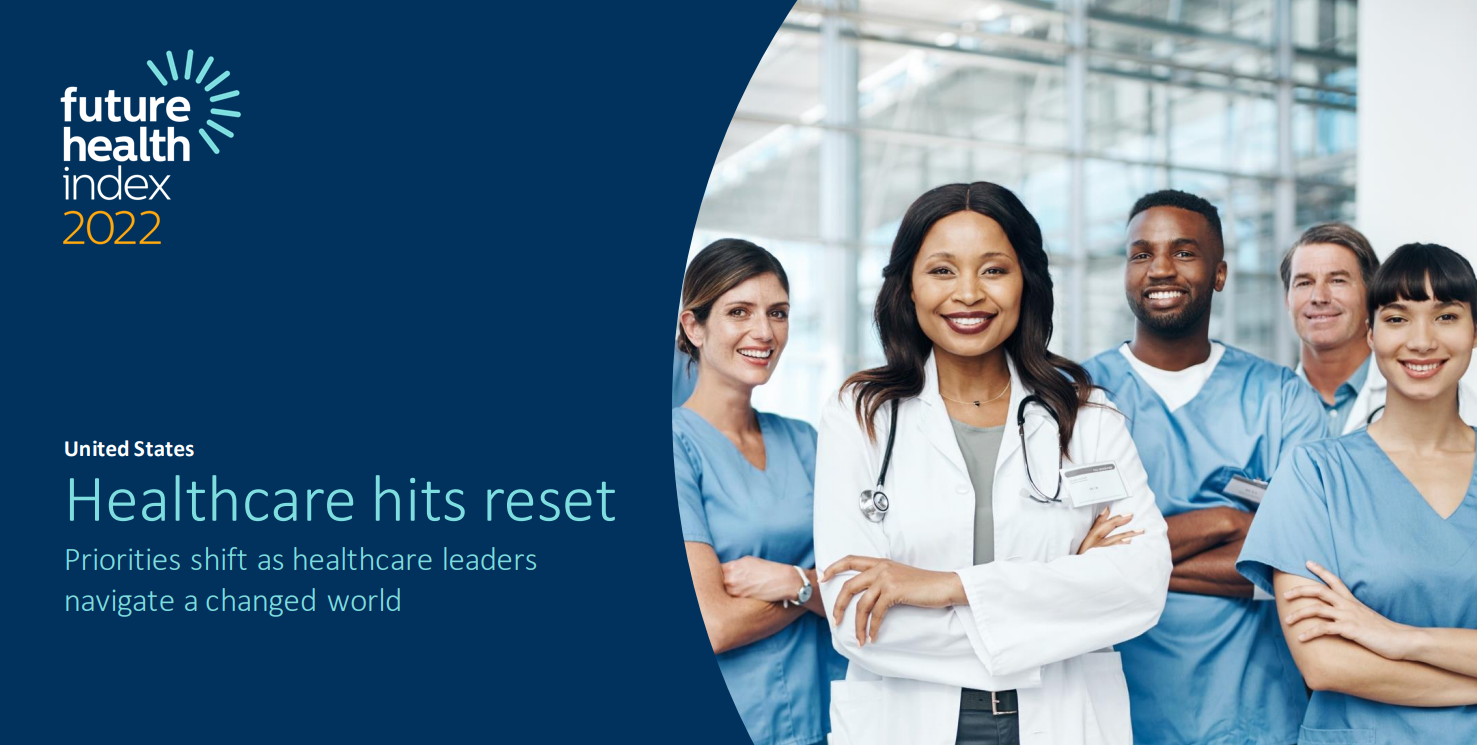
What You Should Know:
– Today, Philips announced the publication of its Future Health Index (FHI) 2022 report: ‘Healthcare hits reset: Priorities shift as healthcare leaders navigate a changed world’. FHI is the largest global survey of its kind, analyzing feedback from nearly 3,000 healthcare leaders across 15 countries on the impact of digital health technology in the adoption of connected care.
– This year’s FHI report, the seventh edition, looks at how healthcare leaders are resetting priorities as they emerge from the pandemic, with a particular focus on the power and potential of data.
The report reveals that while one in five (22%) healthcare leaders use predictive analytics for diagnostic guidance and 68% agree that these analytics can have a positive impact on improving health inequality, the potential of predictive analytics remains unfulfilled. Similarly, despite confidence in the value of data, 46% of healthcare leaders still see it as more of a burden than an asset.
Here are four key trends from the 2022 report that illustrates the priorities of healthcare leaders, including how these leaders are harnessing the power of data and digital technology:
1. Staff satisfaction and retention top the priority list for healthcare leaders
Globally, around one in three healthcare leaders (30%) say staff satisfaction and retention combined is a top priority. However, what is driving this priority differs from country to country. For example, in the USA and Germany staff satisfaction and retention is driven by the ‘great resignation’. In India, the ever-increasing demand for more healthcare professionals is the predominant driver. Across all countries, healthcare leaders’ investments in digital technologies will help to improve the staff experience.
2. While data is seen as an enabler, the potential of predictive analytics remains unfulfilled
Healthcare leaders have confidence in predictive analytics with 71% trusting predictive analytics in clinical settings, and 72% in operational settings. Overall, healthcare leaders see the positive impact of predictive analytics, particularly in health outcomes, patient experience and staff experience, and more than half (56%) have already adopted, or are in the process of adopting, predictive analytics in some form. However, uptake remains uneven, with a marked difference in adoption among developed and emerging countries (65% vs 48%). The FHI 2022 research also indicates even those who are furthest along in adoption of predictive analytics are not leveraging the full potential of the technology.
3. Overcoming the barriers to effective data use is crucial to gain widespread adoption
While confident in the value of data, healthcare leaders remain frustrated by ongoing barriers to effective data usage, including siloed data (51%) and infrastructure limitations (23%). With cyberattacks increasingly targeting the healthcare sector, one in five (21%) cite concerns about data privacy and security as a top barrier to using data to its full potential. They also say greater data security and privacy systems and protocols are the top way to strengthen their trust in predictive analytics in both clinical (38%) and operational (35%) settings. Additionally, only 19% of healthcare leaders have all the internal expertise they need to fully use the data they have available, while 24% cite the availability of data specialists as a top factor in helping to better utilize data. Despite seeing the potential of data, as a result of these frustrations, nearly half of healthcare leaders (48%) view data as more of a burden than an asset today.
4. Leaders are fast-tracking social responsibility
The pandemic threw a spotlight on health inequality and healthcare leaders are responding. One-quarter (25%) see addressing health inequality as a priority today, compared to only 12% in 2021. Technology can play a part: two in three healthcare leaders (68%) agree that predictive analytics can have a positive impact on helping to reduce health disparities by providing fast and accurate insights on risk scores to help identify more vulnerable groups for proactive planning to help better manage community health issues like disease outbreaks, cancer incidences and more.
“As we emerge from the pandemic, healthcare leaders worldwide are embarking on a reboot,” said Jan Kimpen, Chief Medical Officer, Philips. “Many are refocusing on both new and existing priorities, from addressing staff shortages and extending care delivery, to leveraging big data and predictive analytics.”
